Since its establishment in 1949, and with growing popularity in recent years, Eyring's transition-state theory (TST) for transmembrane permeation has been applied in numerous studies to mechanistically explore molecular transport in membranes including RO and NF. In this review, we critically assess TST applied to transmembrane permeation in.. Transition-state theory allows for the characterization of kinetic processes in terms of enthalpy and entropy of activation by using the Eyring equation. However, for reactions in solution, it fails to take the change of viscosity of solvents with temperature into account.

Transition State Theory Entropy Please read note in comments! YouTube

Eyring analysis of transitionstate thermodynamics Linear Eyring plots... Download Scientific
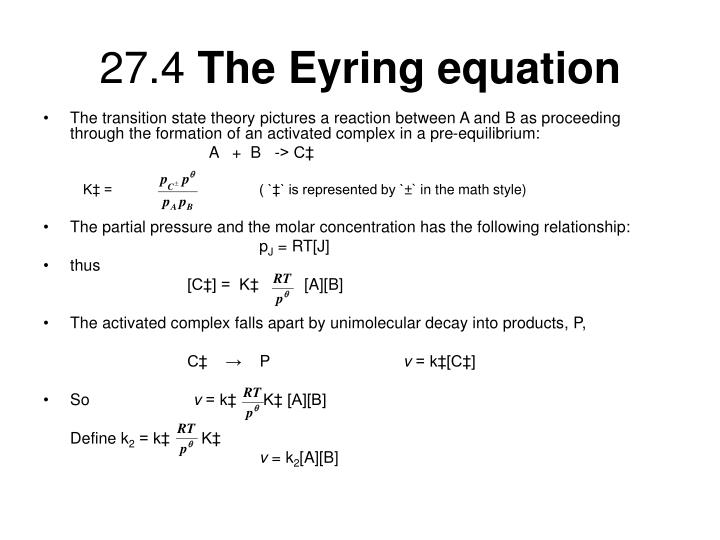
PPT Activated complex theory PowerPoint Presentation ID3995760

Lec17 The EyringPolanyi Equation YouTube

Eyring equation transition state theory eyring equation in chemical equation

Transition State Theory Activated Complex Theory Eyring Equation Chemical for CSIR

Relationship Between Arrhenius Activation Energy and Transition State Theory (Eyring Equation

TRANSITION STATE THEORY ACTIVATED COMPLEX THEORY EYRING EQUATION CHEMICAL YouTube

Transition State Theory Eyring Equation Chemical Part 24 ( In Hindi ) YouTube

PPT Chemical the rates of reactions PowerPoint Presentation ID1523033
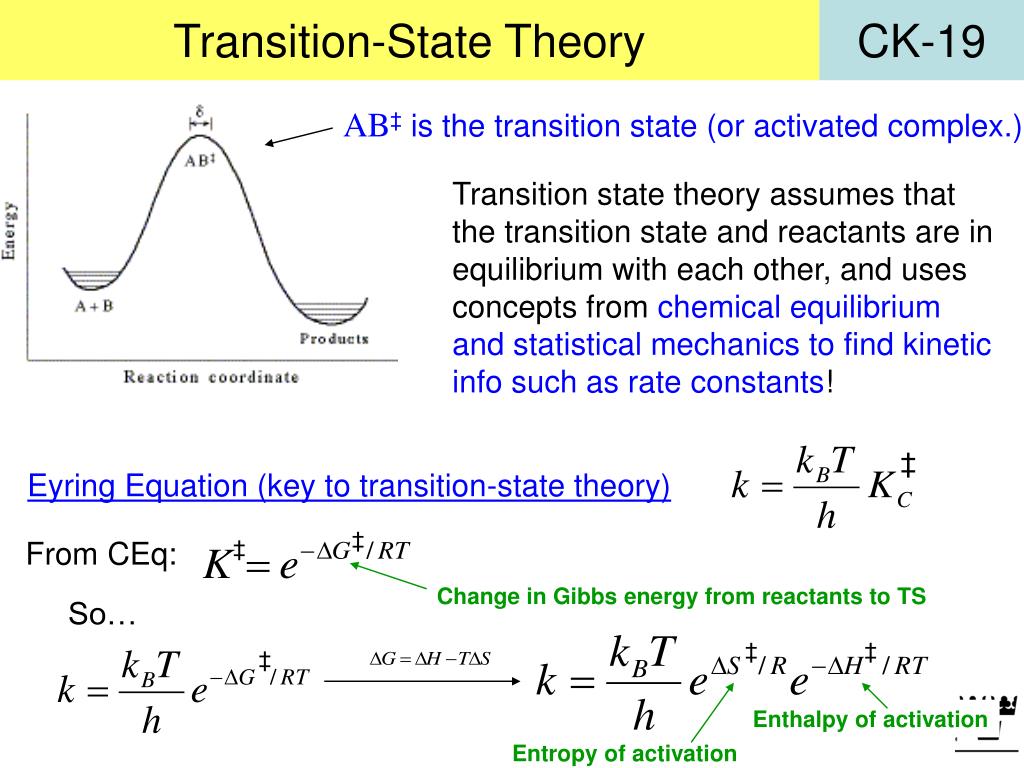
Get Transition State Theory Equation Ariana

Transition state theory YouTube
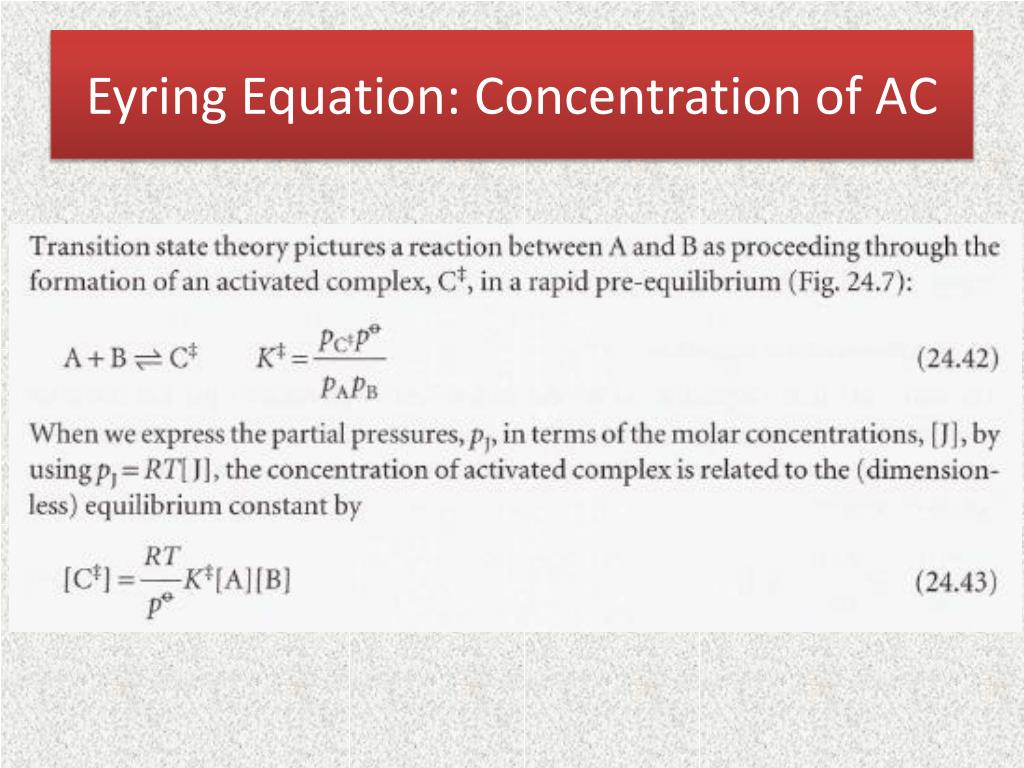
PPT TRANSITION STATE THEORY (TST) TEORI KEADAAN TRANSISI PowerPoint Presentation ID6894826
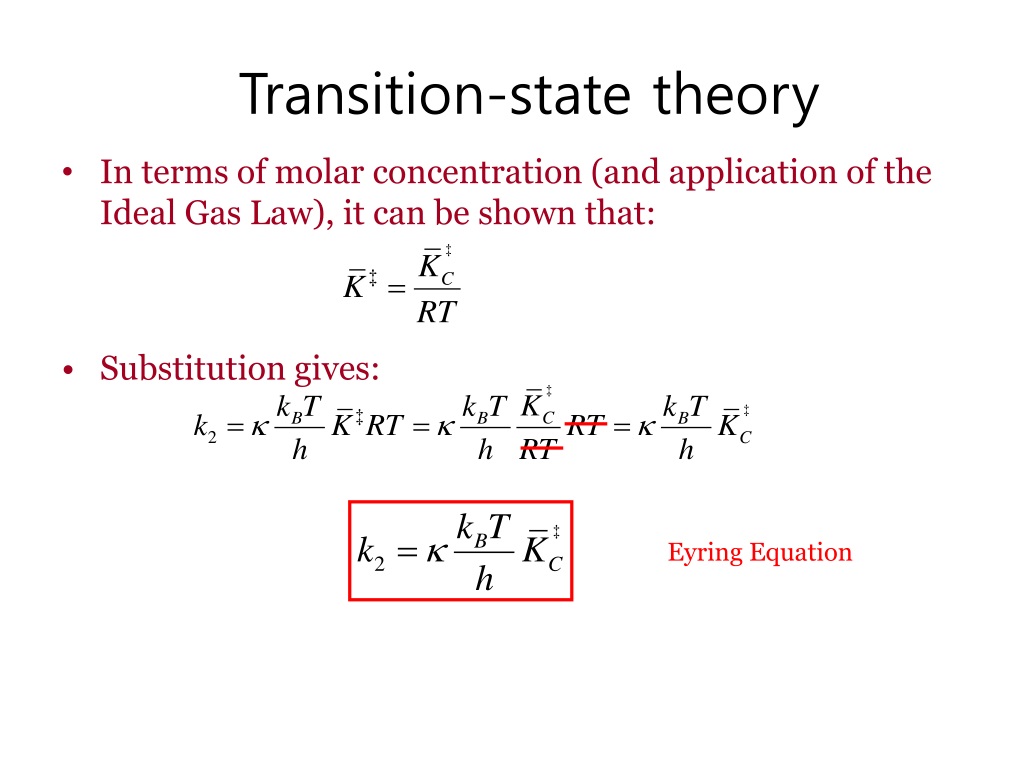
PPT Chemical the rates of reactions PowerPoint Presentation ID1523033

Transition state theory Chenxing Luo
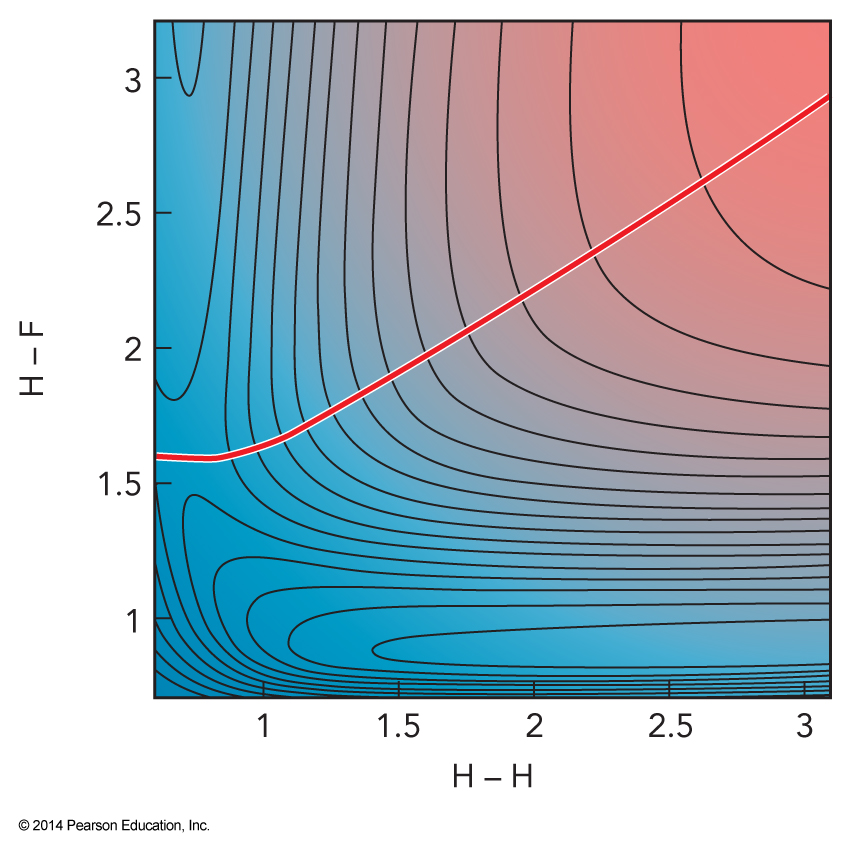
Chapter 13 Presentation

Transition State Theory Gibbs Energy YouTube

Get Transition State Theory Equation Ariana

PPT Chemical the rates of reactions PowerPoint Presentation ID1523033

14.5 Transition State Theory YouTube
The transition state theory (TST), which is also known as theory of absolute reaction rates (ART) and the theory of activated state (complex), is essentially a refined version of crude collision theory, which treats the reacting molecules as the rigid spheres without any internal degree of freedom. The theory explains the rate of chemical reaction assuming a special type of chemical.. The theory assumes that reactants are hard spheres rather than molecules with specific structures. In 1935, Henry Eyring helped develop a new theory called the transition state theory to provide a more accurate alternative to the previously used Arrhenius equation and the collision theory. The Eyring equation involves the statistical frequency.